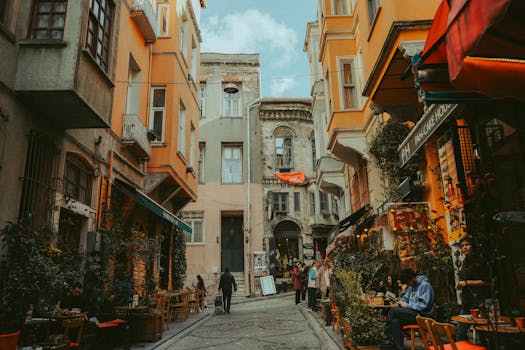
Traveling Through Time: How Europe’s Historical Heritage Shapes Modern Lifestyles in 2025
Traveling Through Time: How Europe’s Historical Heritage Shapes Modern Lifestyles in 2025. Europe, a continent steeped in history and culture, has a profound impact on modern lifestyles. From the ancient ruins of Greece and Rome to the medieval castles of England and France, Europe’s historical heritage is a tangible link to the past. In this article, we’ll explore how Europe’s rich cultural legacy continues to shape modern lifestyles in 2025, and highlight some of the most fascinating cultural destinations to visit.
Architecture and Urban Planning
Europe’s historical heritage is perhaps most visible in its architecture and urban planning. Many of Europe’s cities, such as Paris, Rome, and Barcelona, are characterized by narrow, winding streets and historic buildings that date back centuries. These cities have been able to preserve their unique character while still incorporating modern amenities and infrastructure. For example, the city of Paris has implemented a range of sustainable urban planning initiatives, including bike-sharing schemes and green roofs, while still maintaining its historic charm.
Cuisine and Food Culture
European cuisine is renowned for its diversity and richness, with each country having its own unique culinary traditions. From Italian pasta and pizza to Spanish tapas and French haute cuisine, European food is a key part of the continent’s cultural heritage. In 2025, European cuisine continues to evolve, with a growing emphasis on sustainability, locally sourced ingredients, and innovative cooking techniques. For example, the city of Copenhagen is home to a range of Michelin-starred restaurants that showcase the best of Danish cuisine, using fresh, seasonal ingredients and creative presentation.
Art and Culture
Europe is home to some of the world’s most famous museums and art galleries, including the Louvre in Paris, the Uffizi Gallery in Florence, and the National Gallery in London. These institutions are a testament to Europe’s rich cultural heritage, and continue to inspire and educate visitors from around the world. In 2025, Europe’s art and culture scene is more vibrant than ever, with a range of innovative exhibitions, performances, and festivals taking place throughout the year. For example, the city of Berlin is home to a thriving arts scene, with a range of galleries, museums, and performance venues that showcase the best of contemporary German culture.
Conclusion
In conclusion, Europe’s historical heritage continues to shape modern lifestyles in 2025, from architecture and urban planning to cuisine and art. By exploring Europe’s rich cultural legacy, we can gain a deeper understanding of the continent’s history, culture, and people. Whether you’re interested in history, food, art, or simply exploring new destinations, Europe has something to offer. So why not start planning your next trip to Europe today, and discover the continent’s fascinating cultural heritage for yourself?





